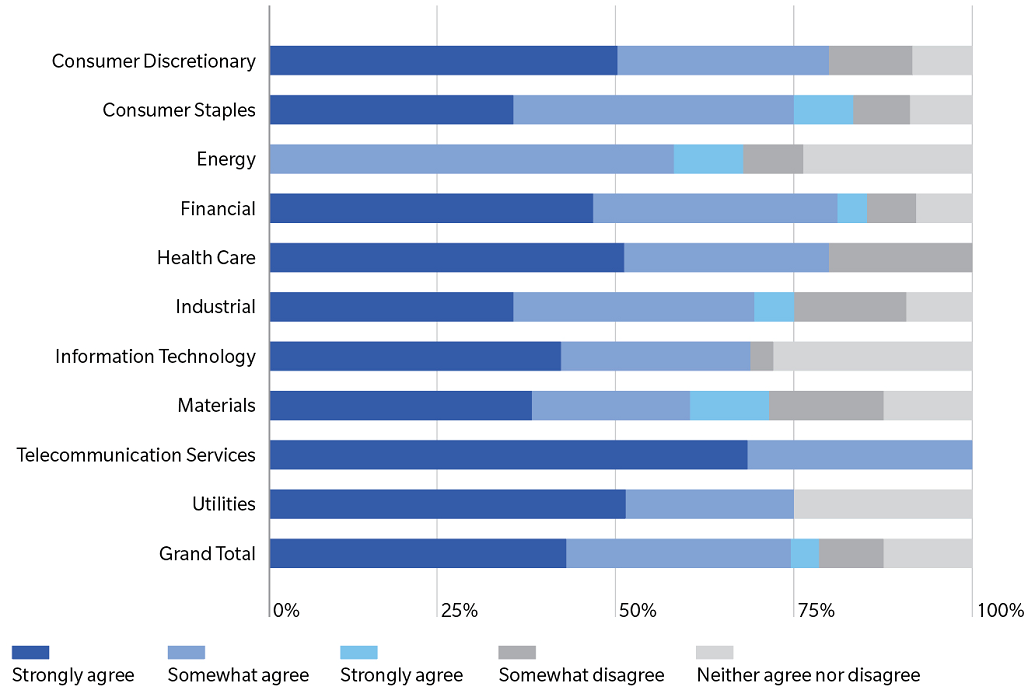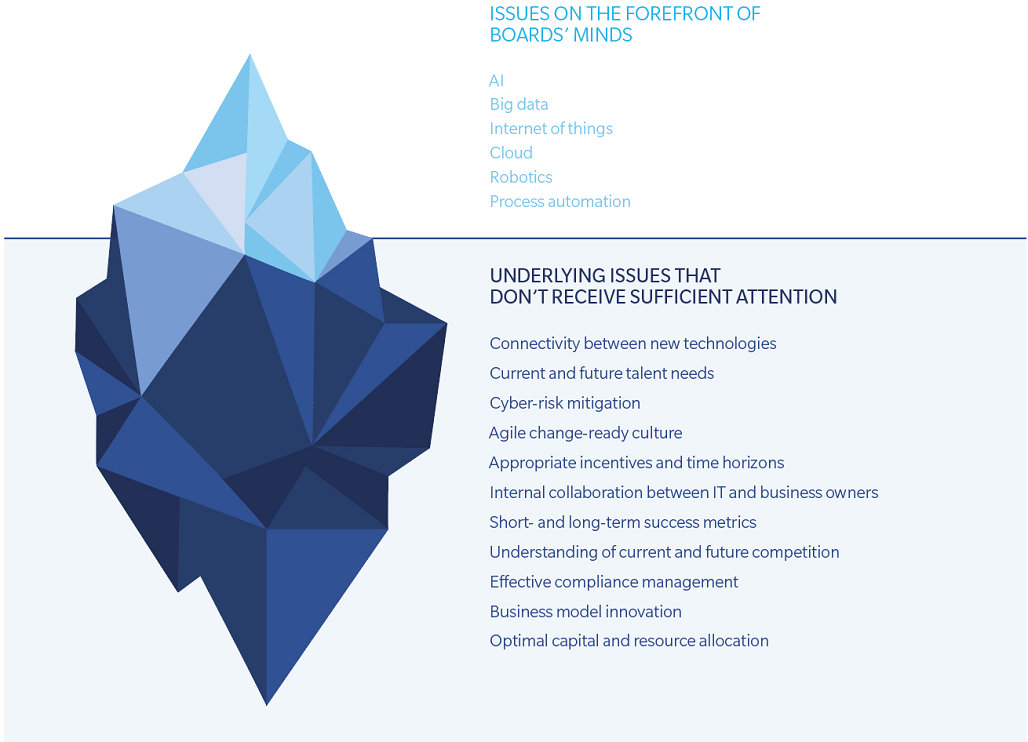Competing in the digital era
A convergence of global trends over the last 20 years, including the boom in global data traffic, online users, connected objects, and access to cloud computing has laid the groundwork for the digital era. Armed with access to new technologies such as artificial intelligence (AI), blockchain, Internet of Things, and Robotics Process Automation (RPA), traditional firms across industries are pursuing digital transformation to reimagine solutions to existing business challenges and create exponential value for their customers and partners.
 Businesses globally have a right to be optimistic. The World Economic Forum predicts the combined value of the digitalization already occurring in every industry could generate upwards of $100 trillion over the next six years.
Businesses globally have a right to be optimistic. The World Economic Forum predicts the combined value of the digitalization already occurring in every industry could generate upwards of $100 trillion over the next six years.
However, traditional firms, regardless of size, recognize the potential for disruption from technology giants and digital startups and the resulting threat of value migration. Disruptors like Uber, Amazon and Tesla are meeting rising customer expectations and setting a new standard for what “good” looks like.
To compete in the digital era, traditional firms are asking fundamental questions regarding shifting strategy, maintaining relevance, and capturing and retaining customers’ attention.
But traditional firms face very different circumstances than new, digital businesses. While they have advantages, like established brands, markets, know-how, customers, suppliers, organizations, and cash flow, they rely on decades-old approaches, legacy systems, processes and decision-making cultures to deliver profitable core businesses. This makes competing on customer experience, speed, agility, and lower cost a major challenge.
Board members across industries recognize the near-term disruptive potential of new business models enabled by emerging technologies and are actively reassessing their oversight role in governing digital transformation initiatives. They also realize that their current state of governance is no longer enough to fulfill their fiduciary duty to shareholders.
Boards play a critical role in guiding firms through a successful transformation, which can be a complex and costly – but necessary – endeavor.
Exhibit 1: Boards across industries expect near-term disruption from emerging technologies
(My company is vulnerable to the impact of disruption from emerging technologies within the next 12 months)

New roadmap for corporate governance in the digital age
Governing Digital Transformation and Emerging Technologies: A Practical Guide, a joint report from the National Association of Corporate Directors (NACD) and Marsh & McLennan Insights, offers a new roadmap for successful corporate governance in the digital age.
This report draws from primary research conducted through interviews with company directors as well as a survey of 200 NACD members and outlines five foundational principles to help prepare directors for navigating the complexities of digital transformation and emerging technologies:
- Approach emerging technologies as a strategic imperative, not just an operational issue;
- Develop collective, continuous technology-specific learning and development goals;
- Align board structure and composition to reflect the growing significance of technology as a driver of both growth and risk;
- Demand frequent and forward-looking reporting on technology-related initiatives; and
- Periodically asses the organization’s leadership, talent and culture-readiness for technological change.
Each principle includes specific recommendations and questions for consideration to assist boards with charting potential pitfalls, spotting red flags and formulating and adopting a more cohesive oversight approach.
The report also features emerging technology “cheat sheets” on Artificial Intelligence, Robotic Process Automation and Internet of Things.
Exhibit 2: Boards need to monitor multiple areas to understand the health of a digital transformation program.

G overning Digital Transformation and Emerging Technologies
overning Digital Transformation and Emerging Technologies
Please visit the NACD to access the full report: EXECUTIVE SUMMARY, VISIT NACD



Leave a Reply